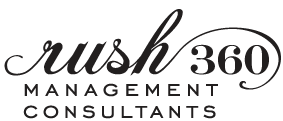Principles from scaling up excellence to facilitate change.
Change is hard for people because it disrupts our routines and creates uncertainty in our lives. If we had a choice most of us would rather not change unless the pain of what we are currently doing is so great that there is no other choice.
Leading companies and organizations have found ways to “scale up excellence” or in other words implement change that make it fun and rewarding for those involved. It requires a little more creativity from leaders but it is worth the effort.
What if the principles for scaling up excellence could make all the change underway in the healthcare industry seem easy and fun.
Three of the seven principles for scaling up excellence
1. Link hot causes to cool solutions
The first step is to spark emotion of fear or anger with a catchy slogan supporting the need and/or goal for change. My favorite slogan was used to ignite the competitive spirit within an oil company trying to win market share from Shell. Every decision made had to be justified in context to how it would help the company “Slam the Clam”.
Could you imagine that kind of energy behind a healthcare initiative? The IHI save lives campaigns are a good example of the type of messaging needed. The campaigns are easy to understand, measurable and are actionable by all providers. Who wouldn’t want to be apart of an initiative to save 100,000 lives?
What if we reframed the need for change in healthcare to what good health feels like and means to individuals and the nation rather than talking about the threat to Medicare and the triple aim. Would you be more inspired to do your part if there was something meaningful in it for you?
2. Make information easy to digest
The second step is to make information easy to digest and act on. This is particularly important as more data is made available to the industry. Studies have shown that people make poor decisions when they have too much to process. IHI was one of the leading organizations that understood the challenge of cognitive overload. When they asked for help to save the lives of pneumonia patients they asked providers to do one thing. Keep the bed of patients with pneumonia at 45 degrees. Rather than burdening nurses with an additional task, IHI suggested using a simple cue. They asked providers to paint a line on the wall so that everyone could easily see the measurement and adjust the bed as needed.
To achieve this level of simplicity, healthcare companies need to understand what is most important to those they serve in terms of health risks and preferences. The Joie de Vivre hotel chain uses magazines as a way to define their target customer so that hotels offer the right services and have the right amenities. Having a clear understanding of the customer enables the management team to monitor performance with just five measurements specific to each hotel.
What if the healthcare industry could make it that easy for people to measure success. Would you be more engaged if you easily link your contribution to the bigger goal?
3. Use incentives as the juice
The right rewards are an important part of change. Both pride and shame have been shown to be effective at acknowledging, reinforcing and changing behavior more than annual increases. One leading company decided to turn the checkbook over to their customers. Passengers of Southwest were given a checkbook prior to the flight and where instructed to use them to acknowledge the flight crew. The rewards were smaller than an annual raise but more effective because there was a direct link to positive behaviors valued by passengers.
Another industry leader used shame to improve timely attendance of meetings. People arriving late to meetings or engaging in other behaviors that were thought to be disrespectful by the meeting organizer such as taking calls or checking email had to pay $10. People attending the meetings could afford to pay the $10 but were more ashamed of being called out for their “bad” behavior. The repeat offenders started showing up on time and paid attention during meetings.
What if patients were given checkbooks to reward those that cared for them or if shame was used in a more playful way to change bad or less than desirable behaviors. Would you be more customer focused and mindful of your behavior?
